In today’s fast-paced world, where access to medical assistance may not always be readily available, it is crucial to empower ourselves with the knowledge and skills to become a home doctor. By learning to be self-reliant and practicing self-care, we can not only take care of ourselves and our loved ones but also assist communities in times of need.
This article will guide you on the path to becoming a home doctor, providing you with valuable insights and essential tips to navigate healthcare challenges with confidence and compassion.
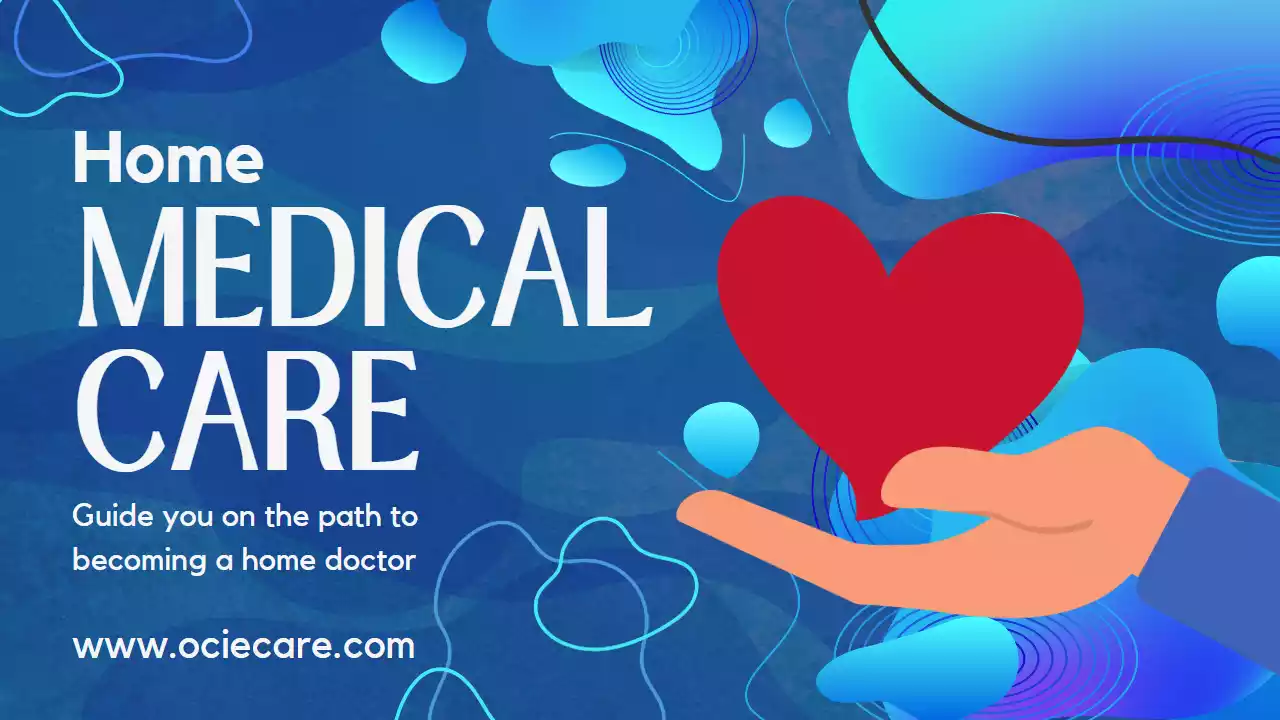
Become a Home Doctor
In a world where medical emergencies can strike at any moment, being self-reliant in healthcare is of utmost importance. When faced with situations where immediate medical assistance is not readily available, having the knowledge and skills to take charge can make a significant difference. Additionally, self-care plays a vital role in maintaining our overall well-being and resilience. By learning to be a home doctor, we can not only enhance our healthcare but also become a valuable asset to our families and communities.
A. The importance of being self-reliant in healthcare
Being self-reliant in healthcare allows us to address minor injuries, illnesses, and emergencies effectively. It empowers us to take immediate action, minimizing the impact and ensuring a quicker recovery. Moreover, self-reliance in healthcare provides a sense of security, knowing that we have the skills and knowledge to navigate challenging situations confidently.
I. The need for self-care and assisting communities
- Self-care is essential for maintaining our physical, mental, and emotional well-being.
- By prioritizing self-care, we can prevent illnesses, manage stress, and improve our overall quality of life.
- Additionally, in times of crisis or when medical assistance is limited, our ability to assist others in need becomes invaluable.
- By becoming a home doctor, we can extend our care beyond ourselves and make a positive impact on our communities.
II. Medical assistance during emergencies
- While self-reliance and self-care are essential, it is important to acknowledge that professional medical assistance should always be sought in emergencies or when faced with serious health conditions.
- Becoming a home doctor does not replace the expertise of healthcare professionals but rather complements it by providing immediate assistance and support.
B. Becoming a Home Doctor
Becoming a home doctor starts with empowering ourselves with medical knowledge and basic healthcare skills. While it does not require a formal medical background, it does require dedication and a willingness to learn. Let’s explore the steps you can take to become a proficient home doctor.
I. Empowering individuals with medical knowledge
- Knowledge is the foundation of being a home doctor.
- Start by familiarizing yourself with basic medical terminology, common illnesses, and their treatments.
- Online resources, books, and reputable healthcare websites can be valuable sources of information.
- Stay updated with the latest medical advancements and breakthroughs to ensure your knowledge remains relevant.
II. Learning basic first aid and emergency care
- One of the fundamental skills of a home doctor is the ability to provide immediate first aid and emergency care.
- Enroll in a first aid course to learn essential techniques, such as CPR, wound management, and fracture immobilization.
- Practice these skills regularly to ensure you remain confident and competent in times of need.
III. Understanding common illnesses and their treatments
- A home doctor should have a good understanding of common illnesses, their symptoms, and appropriate treatments.
- Educate yourself on topics such as fever management, cold and flu remedies, and basic pain relief techniques.
- Remember, while you can provide initial care, it is important to consult a healthcare professional for proper diagnosis and guidance.
C. Self-Reliance and Self-Care
Self-reliance and self-care are interconnected aspects of becoming a home doctor. By prioritizing your health and well-being, you set the foundation for effectively caring for others. Let’s explore some key areas of self-reliance and self-care.
I. Promoting a healthy lifestyle
- Maintaining a healthy lifestyle is essential for overall well-being.
- Eat a balanced diet, engage in regular physical activity, and get enough restful sleep.
- Incorporate stress-reducing activities such as meditation or yoga into your routine.
- By leading a healthy lifestyle, you set an example for others and promote well-being within your community.
III. Developing good hygiene practices
- Practicing good hygiene is vital for preventing the spread of diseases.
- Wash your hands frequently, especially before handling food or providing care to others.
- Follow proper guidelines for food preparation, storage, and handling.
- Encourage others to adopt good hygiene practices as well, ensuring a safe and healthy environment for everyone.
IV. Managing stress and mental health
- Stress can take a toll on our physical and mental well-being.
- Learn stress management techniques such as deep breathing exercises, mindfulness, or engaging in hobbies that bring you joy.
- Prioritize your mental health by seeking support when needed and fostering open communication with loved ones.
D. Taking Care of Your Family and Loved Ones
As a home doctor, your skills and knowledge can benefit your family and loved ones immensely. By being proactive in their healthcare, you can provide immediate assistance, support, and peace of mind. Let’s explore how you can take care of your family and loved ones effectively.
I. Basic healthcare for family members
- Familiarize yourself with the healthcare needs of your family members.
- Keep track of their medical histories, allergies, and any chronic conditions they may have.
- Ensure they receive regular check-ups and vaccinations.
- Be attentive to any changes in their health and provide timely care and support.
II. Recognizing signs of illness and providing support
- Develop the ability to recognize common signs and symptoms of illnesses.
- By being observant and proactive, you can provide timely care and support to your family members.
- Offer comfort, reassurance, and assistance when they are unwell, ensuring their well-being and recovery.
III. Creating a safe and healthy environment
- Create a safe and healthy environment within your home.
- Regularly clean and disinfect frequently touched surfaces to prevent the spread of germs.
- Maintain a well-stocked first aid kit and ensure emergency contact numbers are easily accessible.
- Install safety measures such as smoke detectors, carbon monoxide detectors, and fire extinguishers to protect your loved ones from potential hazards.
E. Assisting Communities in Times of Need
Beyond your immediate circle, as a home doctor, you have the opportunity to extend your care and assistance to your community. During times of need, such as disasters or emergencies, your skills and knowledge can make a significant impact. Let’s explore how you can assist your community effectively.
I. Volunteering in local healthcare initiatives
- Explore local healthcare initiatives and volunteer your time and skills.
- Many organizations offer opportunities to provide basic medical assistance or support at community health events.
- By volunteering, you contribute to the well-being of your community and foster a sense of unity.
II. Providing aid during disasters and emergencies
- Disasters and emergencies often overwhelm healthcare systems, making immediate medical assistance scarce.
- In such situations, your knowledge and skills as a home doctor become invaluable.
- Join local disaster response teams or organizations that provide medical aid during emergencies.
- By being prepared and available, you can assist those in need when medical resources are limited.
III. Promoting health education in the community
- Education is a powerful tool for improving community health.
- Take the initiative to promote health education within your community.
- Organize workshops or informational sessions on topics such as first aid, healthy lifestyle practices, or disease prevention.
- By sharing your knowledge, you empower others to become self-reliant in their healthcare journey.
F. Overcoming Challenges
Becoming a home doctor comes with its challenges. It is important to understand your limitations and seek professional help when necessary. Here are some tips to help you navigate these challenges effectively.
I. Understanding limitations and seeking professional help
- Recognize that there are limits to what you can do as a home doctor.
- Serious medical conditions, complex illnesses, or emergencies require the expertise of healthcare professionals.
- Be aware of when to seek professional help and always prioritize the well-being of yourself and others.
II. Staying updated with medical advancements
- The field of medicine is constantly evolving, with new research and discoveries being made regularly.
- Stay updated with medical advancements through reputable sources, continuing education, or online courses.
- This ensures that your knowledge remains current and relevant, allowing you to provide the best possible care.
III. Building a network of healthcare resources
- Create a network of healthcare resources that you can rely on when needed.
- Establish connections with local healthcare professionals, clinics, and hospitals. Familiarize yourself with their services and contact information.
- This network will serve as a valuable support system and resource for you and those you care for.
Become a Home Doctor: Practical Challenge Every Household Face
In some parts of the world, such as Venezuela or African county, people are facing extreme difficulties due to the lack of necessities like electricity, running water, and medical supplies. In such situations, even common ailments can become life-threatening.
However, despite the challenges, people in Venezuela or African countries have developed ingenious ways to manage their health problems and cope with the situation.
Here are some valuable resources for anyone looking to become more self-reliant and better prepared to handle emergencies.
1. 10 Medical Supplies You Need to Have in Your House
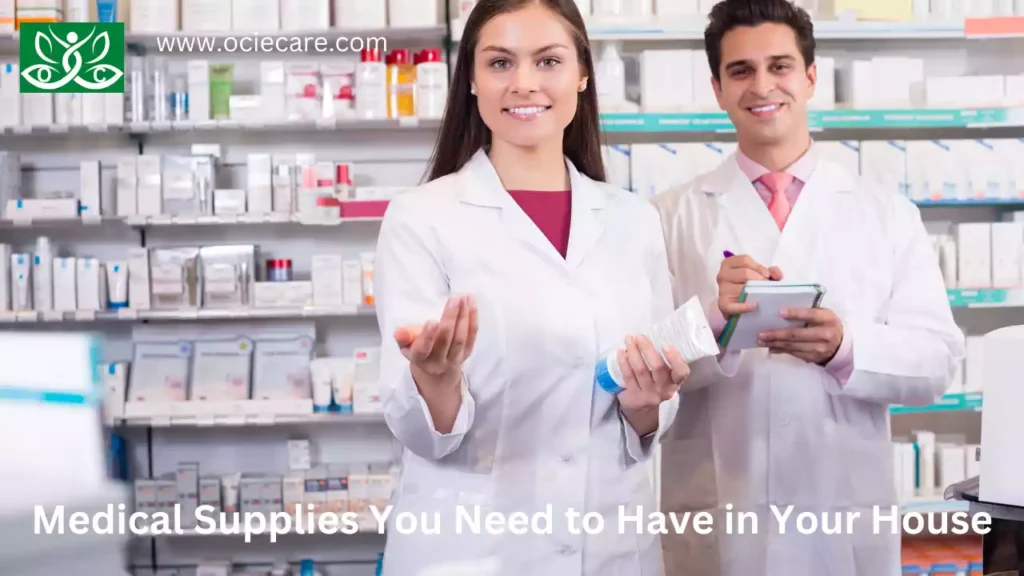
- Although the supplies needed for basic medical care are not typically expensive, they are often in high demand and can run out quickly. It’s important to plan and ensure that you have the necessary supplies on hand before an emergency arises.
- Many of the medical supplies and pills that they woreliesrely on are sourced from China and India, which means that the supply chain can be disrupted by events like an electromagnetic pulse (EMP) or other disasters.
- To prepare for such situations, it’s recommended to keep a stockpile of essential supplies, including over-the-counter painkillers like Naproxen. Naproxen is a powerful painkiller that is more effective than other options like ibuprofen and can help alleviate discomfort in a variety of situations.
- By taking the time to gather these supplies in advance, you can be better prepared to handle emergencies and ensure that you and your loved ones stay healthy and safe.
2. The Biggest Mistakes You Can Make in a Blackout
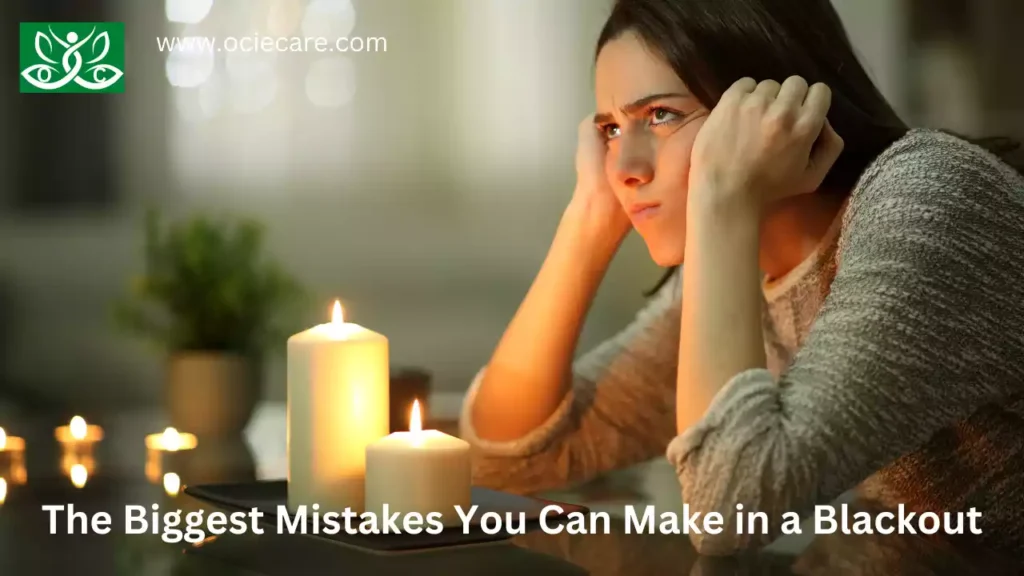
- Electricity is a scarce and unreliable resource in Venezuela, where blackouts have become a regular occurrence and people are forced to adapt to life without power.
- Some potential medical hazards of blackouts and learn how to avoid the biggest mistakes that could jeopardize your health. Additionally, you should find valuable information on how to store and manage medications that require refrigeration, such as insulin or Humira, in case of power outages.
- By knowing these tips and strategies, you can be better prepared to navigate the challenges of life in a blackout and ensure that you and your loved ones stay healthy and safe.
3. How to Recognize a Heart Attack and What to Do Next
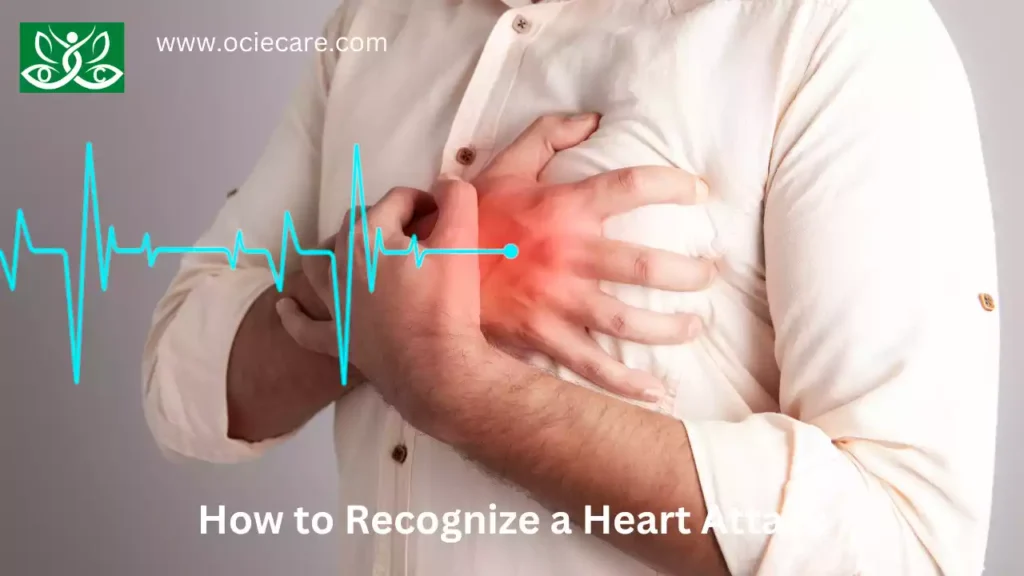
- Heart attacks can have a range of symptoms, but there are four distinctive warning signs that you should be aware of. The first symptom is chest discomfort, which can feel like uncomfortable pressure, squeezing, fullness, or pain in the middle of your chest that lasts for more than a few minutes.
- The second symptom is discomfort or pain in one or both arms, as well as in your back, neck, jaw, or stomach. The third symptom is shortness of breath, which may be accompanied by a feeling of tightness in the chest.
- The last warning sign to watch out for is breaking out in a cold sweat, experiencing nausea, and feeling lightheaded. These symptoms may not all appear at once, but if you experience one or more of them, it’s time to call and seek emergency medical attention immediately.
- To increase your chances of survival before help arrives, you can take certain steps such as chewing on an aspirin and placing a vial of nitroglycerin under your tongue. However, it’s important to have these items readily available at home in advance.
- By being aware of these warning signs and taking proactive steps to prepare for emergencies, you can help protect yourself and your loved ones from the risks of a heart attack.
Common Ailments Seniors Face After 45
4. What Happens When You Take Expired Medications
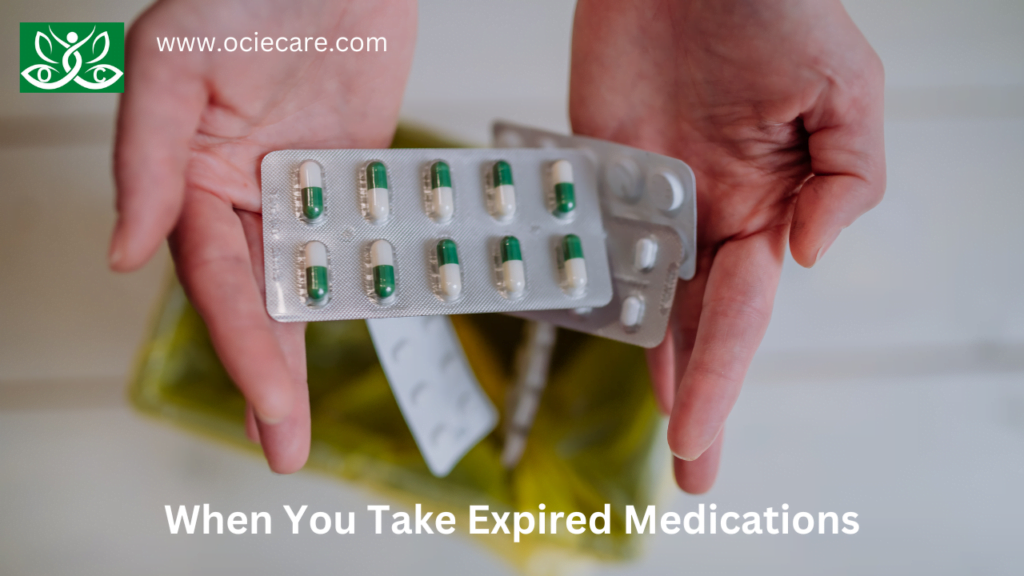
- Venezuela has had to rely on expired medication more than any other country in the world. They have witnessed firsthand what happens when people have no choice but to use expired drugs.
- What may surprise you is that many medications remain safe and effective for years after their expiration dates, while others may lose their potency or even become dangerous.
- You should learn which medications are safe to take after their expiration dates, and which ones should be discarded. By paying close attention to this information, you can make informed decisions about the medications in your medicine cabinet and avoid unnecessary waste.
- Whether you’re dealing with a prolonged crisis or just cleaning out your medicine cabinet, this knowledge can be invaluable.
5. The Only 4 Antibiotics People Should Stockpile
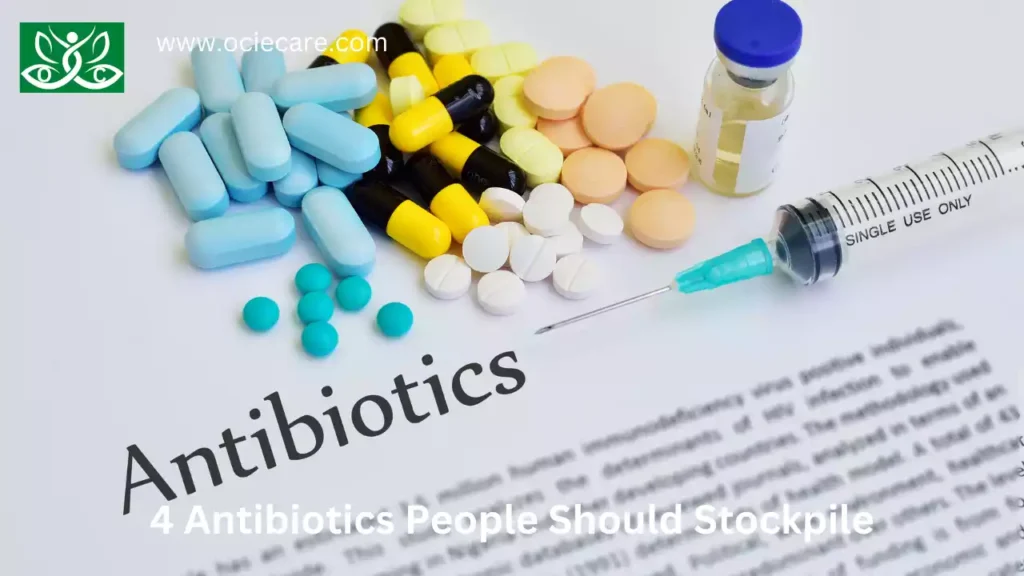
- Antibiotics are essential in treating infections and saving lives. In the absence of these drugs, even minor infections can quickly become life-threatening. That’s why it’s recommended to stockpile four different antibiotics for emergency situations, and you should know how you can do so legally, without a prescription.
- Each of these antibiotics contains unique substances that work in different ways. While bacteria can become resistant to one type of antibiotic, the chance that they can resist all four is very slim.
- During times of scarcity, antibiotics will become invaluable resources. Having these antibiotics at home can be just as important as having food stockpiles.
- However, it’s critical to consult a doctor before taking any antibiotics, even in an emergency situation.
6. The Best Natural Painkiller That Grows in Your Backyard
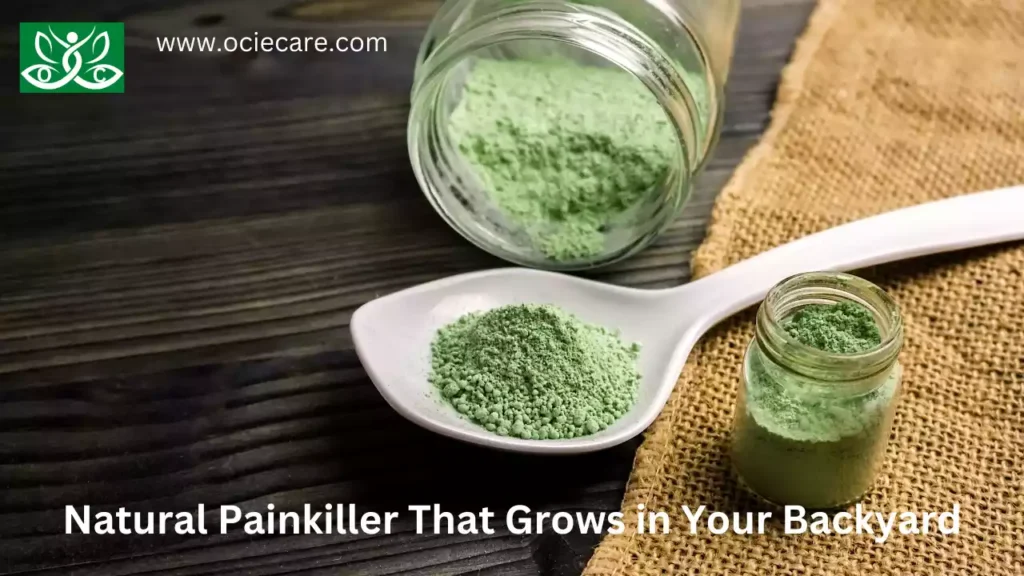
- You should also learn about the best natural pain reliever that is likely to grow in your backyard. This pain-relieving plant was a go-to for many in Venezuela when they could no longer find relief at the pharmacy. It also grows abundantly throughout North America.
7. An Ingenious Way to Stockpile Prescription Medicines, Including Insulin
- You should know how to manage the shortage of medications, such as insulin, which some individuals require on a daily basis. Daily the shop found a solution and is now able to obtain the required amount of insulin every day, as well as extra for stockpiling.
- This innovative technique is entirely legal and secure, and you can start using it right away not only for insulin but also for some other medications that are notoriously difficult to stockpile.”
8. How to Quickly Recognize a Stroke and The First Thing YOU MUST DO IMMEDIATELY Afterward
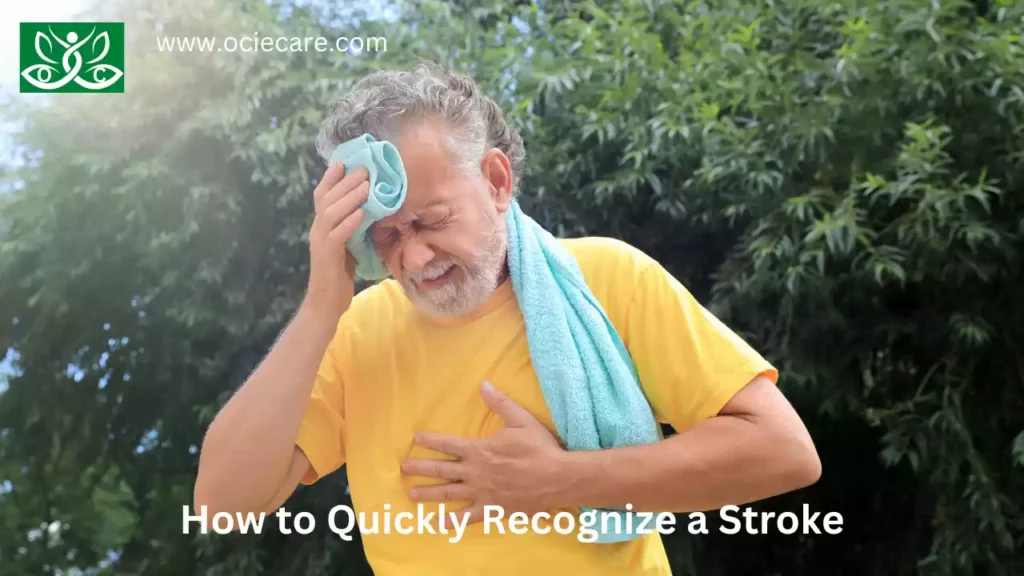
- When it comes to a stroke, every second counts. Time is of the essence, and acting quickly is crucial for a complete recovery. If not treated promptly, a stroke can result in partial paralysis or even worse. You learn how to quickly recognize the signs of a stroke and the immediate action you must take to improve your chances of recovery.
9. What Happens if You Take the Wrong Probiotics
- You should know which probiotics are essential to keep in your medicine cabinet. Probiotics are microorganisms residing in your gut that affect your metabolism and overall health, and they can even cause allergies.
- Therefore, you must choose the right probiotics to avoid disturbing your gut flora. I know individuals who gained weight due to consuming improper probiotics.
- However, a good probiotic can make a significant difference. It can enhance your digestion, alleviate gas, enhance nutrient absorption from food, and even assist with diarrhea and constipation.
10. A Simple “At-Home” Method for the Flu and Other Respiratory Issues
- During the flu season, a lot of people end up in the hospital with a high fever, coughing their lungs out.
- So one of the things you want to know is a simple protocol to deal with it at home if going to a hospital is off the table.
11. A Step-by-Step Approach to Deal With Almost Every Skin Injury and Condition
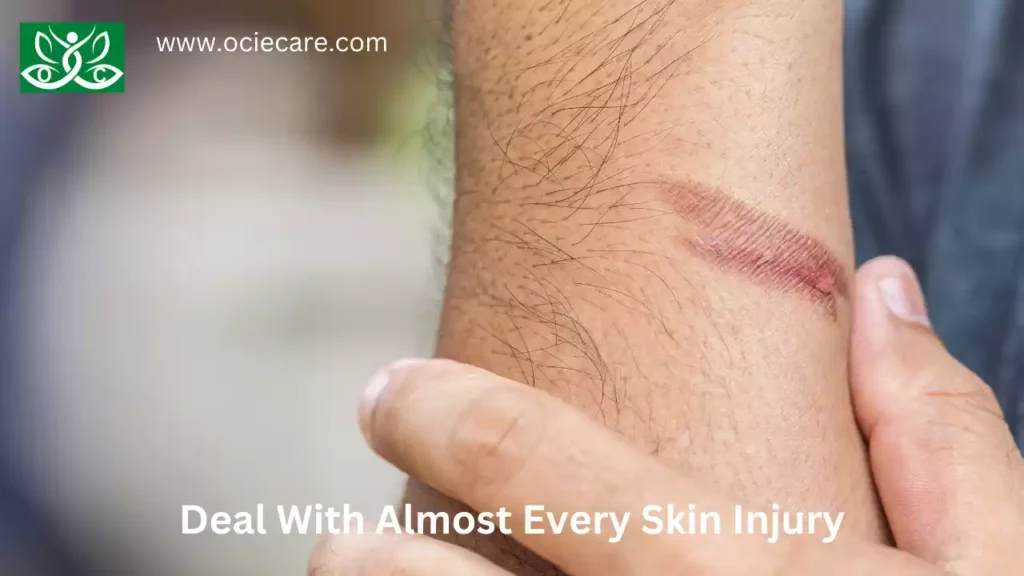
- You can learn how to manage various skin conditions such as corns, warts, athlete’s foot, burns and scalds, dermatitis, fungal infections of the nails, insect bites and stings, abscesses, ulcers, and open wounds.
- You will also discover the benefits of using egg whites on second-degree burns, over-the-counter medicines, and creams to stockpile, and the step-by-step process for cleaning, stitching, and treating an open wound at home.
13. The Unnoticed Symptom That May Point to an Internal Inflammation
- You’ll also learn about the little-known body signs that tell you if you have hidden inflammation inside your body at this very moment.
14. The 1-Minute Stretch That Relieves Most Back and Neck Pains
- You should know how I manage my back problems. Previously, I used to wake up with severe back pain, making it difficult for me to even walk to the bathroom. It would take me several hours to become functional again.
- But, since I discovered this one-minute routine, my condition has improved significantly. If you also suffer from back pain, then this simple move can be helpful for you too.”
15. A Natural DIY Antibiotic Salve Recipe to Keep Around
- An antibiotic ointment is nice to have around when you need it.
- The recipe found inside the Home Doctor aids in keeping a wound from becoming infected and helps reduce scarring.
16. How to Perform a Complete Breast Exam at Home

- Women need to know how to check their breasts for any abnormalities. Early detection of any issues can greatly improve the chances of recovery. That’s why the book will provide you with a set of simple diagrams and instructions to follow, which Dr. Maybell perfected during her two years of work at the prestigious European Institute of Oncology in Milan, Italy.
- These instructions will help put your mind at ease and ensure you know how to properly examine your breasts.
17. How to Use Leeches Medicinally Just Like Folks 100 Years Ago
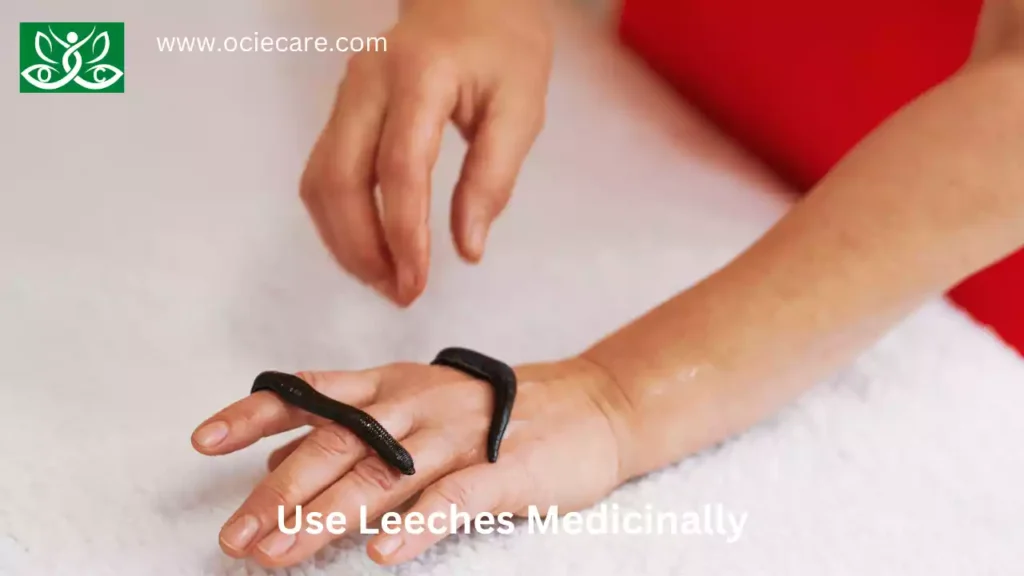
- Did you know that leeches can be used as medicine? They are a very effective and simple remedy for preventing wounds from becoming infected and speeding up the healing process, as long as you don’t mind using them.
- They can also help with high blood pressure, since they reduce the amount of blood flow and therefore decrease stress on your arteries.
18. An Ingenious Eggshell Remedy and 25 Others Made from Things People Usually Throw Away
- 25 remedies that can be made from items you typically dispose of. As they say, one man’s trash is another man’s treasure.
- For instance, you can transform eggshells that you discard into calcium pills, which will be highly beneficial in times of need or when food is scarce.
19. How to Take Care of Toothaches and Mouth Infections When You Can’t Visit a Dentist
- Ever had a really bad toothache that just wouldn’t go away?
- A dental infection can quickly become a nuisance, so you want to know how to take care of it the right way.
20. The Best Way to Tell if an Arrhythmia Is Benign or Dangerous
- Sometimes changes in heart rate and rhythm can occur during sleep, physical activity, and moments of stress, and these are usually normal.
- However, irregular heart rhythms, or arrhythmias, can be a serious problem that, if left untreated, can lead to cardiac arrest and stroke. To determine if it’s time to call emergency, you should look for symptoms of dangerous arrhythmia, which don’t typically occur for milder versions.
- These symptoms include shortness of breath, dizziness, lightheadedness, near-fainting or fainting, and mild chest pain. If you feel your heart beating too fast or too slow and experience at least one of these symptoms, call an ambulance immediately.
21. How to Remove an Ingrown Nail
- You’ll also discover how to remove an ingrown nail. In a situation where medical help is hard to come by, an ingrown nail can cause a serious infection if you don’t remove it.
22. Why You Should Always Keep a Stick of Gum Close by if Your Ears Start to Hurt
- It’s simple really: when you chew the right kind of gum, you not only decrease pressure inside the ear by continuous jaw movements but also ward off ear infections. That’s because of a sweetener called Xylitol.
23. How to Know What’s Wrong if You’ve Got Abdominal Pain
- You can learn how to assess and manage abdominal pain. This process is known as an abdominal evaluation, and you might have gone through it during a routine medical check-up.
- Home Doctor guide, you will find a detailed illustration of the nine sections of the abdomen, which can help identify the source of your discomfort through palpation.
24. Are Your Migraines Hiding Something More Serious?
- You’ll learn about the two most common types of migraines and the simple yet crucial steps to identify which type you have and how to alleviate it.
- If you experience recurring migraines, such as once a month, it’s important to read this chapter, as it could indicate a problem that should not be overlooked.
25. How to Deal with Injuries Caused During Social Unrest
- You should know how to handle common injuries caused by violent protesters and rioters. Dr. Maybell, who worked as a surgeon in Venezuela, has treated more wounds like these than many doctors in other parts of the world have encountered throughout their entire careers.
- We are also not immune to such events, so it’s always better to be prepared.
26. What Doctors Do to Keep Their Immunity High
- You’ll also learn how to maintain a healthy immune system. In this chapter, you’ll discover the strategies that doctors use to boost their immunity when exposed to sick people, and you can apply these techniques at home to protect yourself and your loved ones.
27. How to Use Salt and Oil for Tooth and Gum Decay
- You will also learn about an old remedy that involves using mustard oil and salt to restore gums and remove plaque.
- Salt works as a gentle abrasive that helps eliminate stains and brighten teeth, and it also contains a natural source of fluoride, which is beneficial for teeth. Mustard oil helps strengthen gums and facilitates natural plaque removal.
28. The 10 Most Sought-After Bartering Items in Venezuela
- This book will also demonstrate the ten essential non-medical items that you should start stockpiling immediately.
- These items were highly valued in Venezuela after their economy crashed, and they could be exchanged for almost anything, including medicine.
29. A Before-Bed Recipe to Sleep Like a Baby Again
- You’ll also discover how some of the ingredients readily available in your kitchen can be mixed in the right way to help you fall asleep.
- Instead of taking sleeping pills or even melatonin occasionally, you should try this natural and completely safe recipe as a substitute.
30. 40 Interesting Home Reliefs from Our Grandparents That Could Help You
- You’ll also learn about 40 home remedies that our grandparents taught us and which doctors still prescribe or use. These remedies have become increasingly important for those who prefer a natural approach.
- For instance, you can alleviate headaches using potatoes, soothe bug bites with toothpaste, reduce the fever with vinegar, detox overnight by placing half an onion in your socks, make a cough syrup from black radish, and much more.
31. The Antibiotic Plant That Saved Venezuela
- Are you aware that you can find a natural alternative to “doxycycline” right in your backyard? It’s a plant called Usnea, also known as Old Man’s Beard, and it grows wildly all over North America.
- Once you collect some, the book teaches you how to turn it into an antibiotic tincture that will significantly enhance its potency and shelf life.
32. Cabbage Wraps for Inflammation
- Cabbage leaves are an excellent anti-inflammatory agent that contains compounds capable of drawing out pus or poison from a wound and accelerating the healing process.
- This is not just a folk remedy but was also taught to Dr. Maybell in medical school and later confirmed by her in her practice.
33. Why You Should Always Keep Some Listerine in Your Medicine Cabinet
- Listerine was first created in 1879 as a surgical antiseptic and was named after the renowned British surgeon, Joseph Lister, who is credited with developing the science of antisepsis, or infection prevention.
- In Venezuela’s hospitals, Listerine was commonly used to treat various bacterial and fungal infections, wounds, gangrene, and diabetic foot.
Here’s just a small glimpse of what you’ll find in The Home Doctor: Practical Medicine for Every Household
This book is a unique guide for the layman that you can use when help is not on the way or to manage common ailments that don’t require seeing a doctor.
The Home Doctor: Practical Medicine for Every Household
The Home Doctor is a comprehensive guide that has been written and approved by doctors, containing practical information on how to manage a wide range of health situations, especially when professional help is not available. It is a 304-page book that can be used by anyone to learn how to take care of themselves and their loved ones in emergency situations.
The Home Doctor contains much more than what has been mentioned so far. This book is extensive, with over 300 pages of practical advice, detailed illustrations, and step-by-step instructions that can help you maintain good health and assist others in need.
With the Home Doctor, you can become a “home doc” and learn to take care of yourself and your family when medical assistance is not readily available. This is the main objective of the book – to empower ordinary individuals to be self-reliant and assist their loved ones and communities in times of need.
About Dr. Maybell Nieves
Dr. Maybell Nieves is an experienced surgeon who heads the Unit of Breast Pathology and serves as a general surgeon at Caracas University Hospital in Venezuela. She has over 10 years of experience in the operating room and has studied at the prestigious European Institute of Oncology in Milan, Italy.
Dr. Maybell is renowned for her innovative methods of treating patients in Venezuela, where the collapse of the economy led to a shortage of medicines, supplies, electricity, and running water in hospitals and pharmacies. Her pioneering protocols and procedures have been adapted for use in conflict zones worldwide and are designed to be self-administered, making them invaluable in situations where medical assistance may be limited or unavailable.
Some of these methods can be found in the book co-authored by Dr. Maybell with Dr. Rodrigo Alterio and Claude Davis. As you read through them, you will see why they are so important and why every household and family should have access to them.
Conclusion
Becoming a home doctor is an empowering journey that allows you to take charge of your health, care for your family and loved ones, and make a difference in your community. By learning to be self-reliant and practicing self-care, you equip yourself with the necessary skills and knowledge to navigate healthcare challenges with confidence and compassion.
Remember, while being a home doctor provides immediate assistance, professional medical help should always be sought in emergencies or serious health conditions. Embrace the role of a home doctor and become a beacon of care and support in your unique way.
FAQs
Q. Can I become a home doctor without any medical background?
A. Yes, you can become a home doctor without a medical background. With dedication, a willingness to learn, and access to reliable resources, you can acquire the necessary knowledge and skills to provide basic healthcare.
Q. How can I learn basic first aid and emergency care?
A. Enrolling in a first aid course offered by organizations such as the Red Cross or local healthcare providers is an excellent way to learn basic first aid and emergency care. These courses provide hands-on training and valuable guidance.
Q. What are some important aspects of self-care?
A. Self-care encompasses various aspects, including maintaining a healthy lifestyle, practicing good hygiene, managing stress, and prioritizing mental health. It involves taking proactive steps to nurture your physical, emotional, and mental well-being.
Q. How can I assist my community during times of need?
A. You can assist your community during times of need by volunteering in local healthcare initiatives, joining disaster response teams, or promoting health education. These actions contribute to the well-being of your community and provide support when medical assistance is limited.
Q. Is it possible to be self-reliant in all healthcare situations?
A. While being self-reliant in healthcare is important, it is essential to understand your limitations. Serious medical conditions, emergencies, or complex illnesses require the expertise of healthcare professionals. Knowing when to seek professional help is crucial for optimal care.
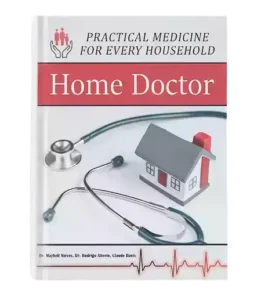

I don’t think the title of your article matches the content lol. Just kidding, mainly because I had some doubts after reading the article.